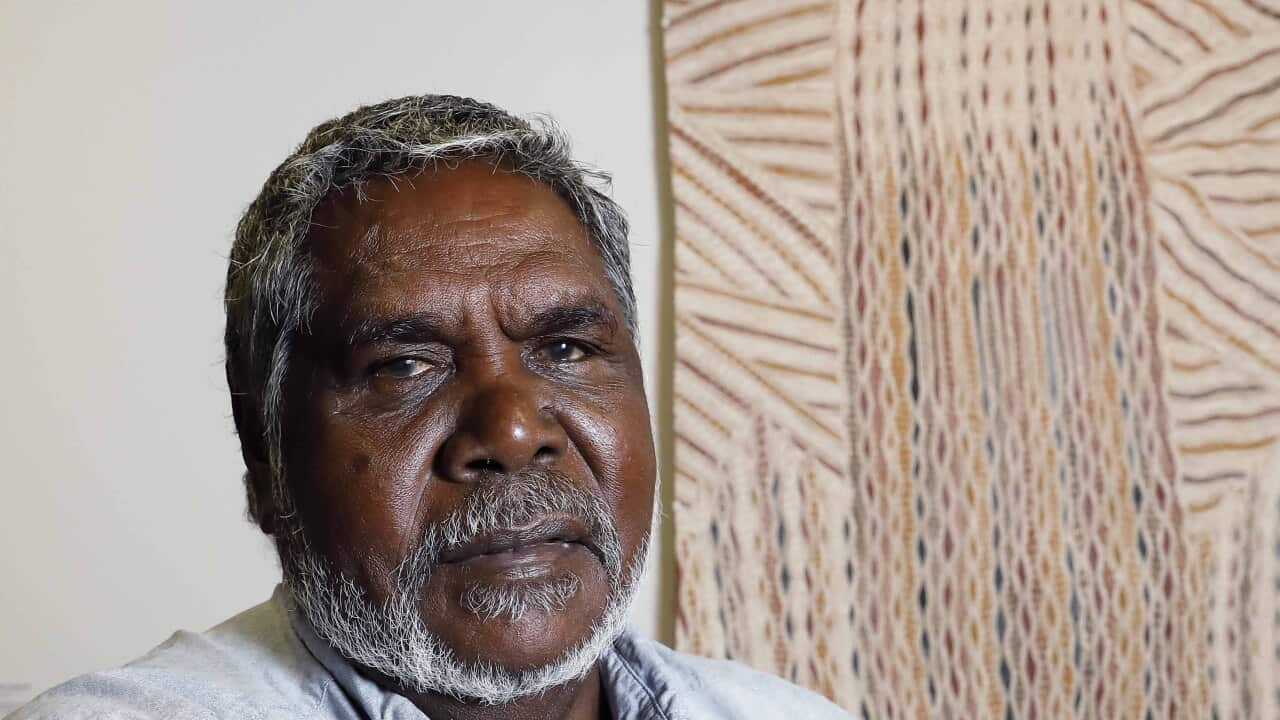Pilbara artist Nyaparu (William) Gardiner shared stories of his life through his art.
Now, his family are continuing to share, through the opening of a major retrospective exhibition of his work.
The exhibition, which opened in Perth, will travel around Western Australia and feature over 50 artworks - many of which have never been publicly displayed.
His life before art
The Nyangumarta/Warnman/Manjilyjarra man worked for years on pastoral stations and as a translator and writer in the northern Pilbara and southern Kimberley.
His father took part in Australia's first Aboriginal workers' strike that lasted from 1946 to 1949.
At the time, Indigenous workers were employed in slave-like conditions on WA's highly profitable pastoral stations, and the strike led to hard-won recognition and some improvement in pay and conditions.
He was a dedicated and loving father, who ensured his children had a life better than his.
"Our 'Old Man' was kind, happy and he loved to laugh with us," members of Mr. Gardiner's family said in a joint statement.
"More than anything, he wanted us to have an easier life than him, he wanted us to do the things that we enjoyed, and he wanted our happiness. He gave us a foundation and showed us how to be in this world, and we will pass it onto our children," they said.
"This exhibition is another way to keep his legacy going, and we are very proud to share his story with you."
Picking up a brush late in life
He was always interested in art, but felt it was something he would do when he stopped working.
In the last four-and-a-half years of his life, he began painting and drawing at Spinifex Hill Studio in South Hedland, creating more than 350 artworks.
"The minute he did, his work was immediately recognisable as that of someone who had quite profound artistic genius," curator Andrew Nicholls from arts body Form told AAP.
"The paintings are incredibly beautiful, he had an extraordinary talent with composition and colour, and the use of space in his work is really extraordinary."
Mr Gardiner was posthumously awarded Best Work on Paper at the National Aboriginal and Torres Strait Islander Art Awards in 2019.
"I think he is one of the most important artists to come out of the Pilbara, he began getting a lot of national attention and then very sadly, he passed away as he was really becoming very well renowned," Nicholls said.
Mr Gardiner is best known for depictions of figures in expansive, cinematic landscapes, and especially liked to paint the Aboriginal stock workers he idolised from his father's generation.
He did most of his intimate portraits from memory, and while he often depicted characters he knew, he would not reveal who they were.
The Spinifex Hill Studio stopped selling his work for some time after he died, but works in the 'He is Myself' exhibition are for sale with the proceeds going to his estate.
The show opened at the Spinifex Hill Studio in South Hedland in July for celebrations with his family and fellow artists, but this is the first time it has been on display for a metropolitan audience.
'He is Myself: The Art of Nyaparu (William) Gardiner' is on at The Goods Shed in Claremont from November 11 till December 18 and will tour regional WA galleries throughout 2023 and 2024.













